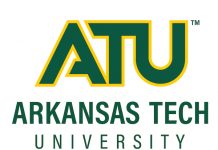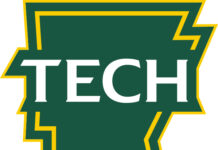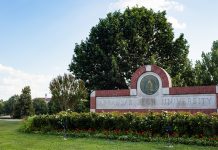Note: Representatives from the International and Multicultural Student Services Office and the English Language Institute at Arkansas Tech University have traveled with Dr. John Watson, vice president for academic affairs, to Ofunato, Japan, to conduct an English language camp for one week. Ofunato was devastated by a tsunami in March 2011. EducationUSA, a program of the U.S. State Department, asked Arkansas Tech to hold an English language camp in Ofunato so that school children can improve their English skills and for to establish ties with the community. Below is part three of a first-person account of the Arkansas Tech delegation’s trip to Japan written and filed from Ofunato by Brent Hogan, instructor in the Arkansas Tech English Language Institute. The Arkansas Tech University/EducationUSA English language camp that we are holding is based in a temporary junior high school building. It is a gray metal prefabricated structure with support wires over each square section to keep it together if there are strong winds or earthquake. There is no sense of permanence about the building, yet it might be used for several more years. Education is one of the last areas to be relieved after infrastructure and business rebuilding. There is a need for more modernization in these classrooms, but the funds have yet to become available. There are basic chalkboards and whiteboards, but nothing that might help with student research that would be on par with the rest of Japan. After visiting the building and preparing our classrooms early on Monday, we began our program at 9 a.m. Originally, we expected nearly 50 middle school to high school age children to attend our camp. On the first day, we had nearly 100 school children in age ranges from 4-to-17 years old. It is a welcome challenge for all of us, especially since we did not expect the numbers of elementary school children. There are several classes that we offer, rotating between age groups throughout the day. Conversation is taught by Jill Greenwood, sports activities is taught by Danny Eschol, American dancing is taught by Kristen Musser, while I teach the writing classes. Yasu Onodera, Lianne Thompson, Dr. John Watson and Rosie Edmond of EducationUSA rotate among the classes, assisting us when needed. Haley Skye and Jacob Wardlaw, Arkansas Tech exchange students from Komazawa University, help each of us with any translation assistance. The camp began with orientation from a local member of the board of education who presented information regarding earthquake and tsunami evacuation procedures. This lasted for 20 full minutes, which shows the level of concern that officials have in this area for the safety of the children and the camp staff. We introduced ourselves, and the kids cheered at the end of the session. At that sound, we knew were in for a great day. Each of us has to remember that the children have probably lost a family member in the tsunami. We second-guessed ourselves a lot the first day, especially when teaching vocabulary. For instance, if we are teaching English words about the family, how will they react if they do not have a father, mother, or grandparent? If they act out in class, is this because of a lack of a parent at home? Ultimately, a teacher has to teach, and if the student has trouble with the concept, we help them with it. By the end of the day, all of us were exhausted. The children were ready for more, and many did not want to go home. On Tuesday morning, a few parents told us that the students went home and taught their new knowledge to their siblings. This is very gratifying to hear, and we hope that our camp gives them lessons that they will remember for a lifetime. Read part one of Brent Hogan’s first-person account from Ofunato. Read part two of Brent Hogan’s first-person account from Ofunato.]]>





